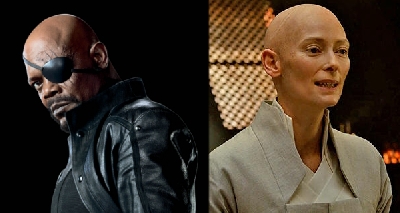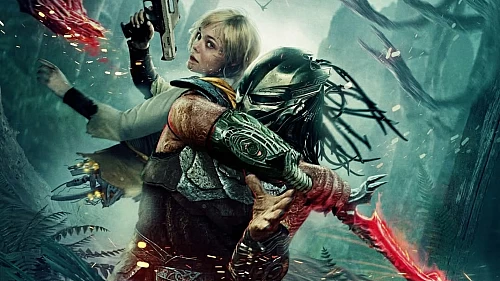When news broke in August 2014 that Bridesmaids director Paul Feig and his proposed "all-female" Ghostbusters reboot was being considered by Sony Pictures Entertainment over the "already in development" Ghostbusters 3 many fans and critics, including myself spoke out about the matter. The views expressed at that time split three ways - some such as myself called the studio out has having lost the plot and ignoring the properties fan base, while others called the studio on its worrying poor track record with remakes and reboots while criticizing Hollywood in general for its over-reliance in revisiting old properties. An exceedingly small, yet, unfortunately, very vocal minority voiced their opinions against the Ghostbuster reboot with needless sexist and racist comments. These comments were popularized when director Feig addressed them and their authors directly on the social network platform Twitter. In this exchange, Feig mistakingly associated these "haters" and their views together with all of those who had voiced opinions against his reboot, called such critics "misogynistic and vile". Although Feig did later address this mistaken association, in the interim a heavy pro-feminism campaign followed any news relating to the reboot, with anyone voicing an opinion against the movie being labeled as sexist. Star Melissa McCarthy's comments on Jimmy Kimmel Live added more fuel to the fire when she labeled all critics against the movie as "lonely middle-aged men living in their mother's basement."

By the time the Ghostbusters reboot was released in theaters this July the pro-feminism campaign surrounding the movie had escalated so much that any positive reviews were labeled as being written out of fear of social backlash. Even now with news circulating that the reboot has failed to reach the $300 million required to warrant a sequel some news outlets are arguing that the movie is socially significant and important, stating that its depiction of strong, independent women is a message that should not be muted or silenced and that any attempt to do so is a conspiracy against women, women's rights and feminism. Such outlets are arguing that despite the reboots lackluster box office performance, a sequel should be greenlit to emphasize the movies alleged pro-feminine message, whereas critics have stated that the movie's message is as shallow and empty as the movies needlessly controversial marketing campaign.
As crazy as all of this sounds, it is but the latest in an increasing trend of outcries from what are being called "Social Justice Warriors" or SJW's who are fighting a culture war against the studios of Hollywood (as well as video game developers, the TV networks and broadcasters, and the respective bodies in virtually all mediums of entertainment) whenever anything released is considered racist, sexist or otherwise potentially negative to any group of persons considered a minority. A recent victim of these outcries is Matt Damon's forthcoming movie The Great Wall, which has attracted criticisms of whitewashing in respect to Damon's role. This is despite the movie being directed by Zhang Yimou, one of China's most respected directors and featuring one of the largest Chinese casts ever assembled. Another victim would be the next installment in the MCU, Doctor Strange, whereby director Scott Derrickson recently had to defend his and Marvel Studio's casting of British actress Tilda Swinton as the Ancient One, who is typically depicted as a male Tibetan in the comic book source material.

Be it supporting the development of movies with a strong female lead or crying out against the casting of caucasian actors in roles originally portrayed by someone of another ethnicity, or even calling against the over-sexualisation of female characters in video games it seems that no one is safe from the growing culture war. Casting Russell Crowe as Noah, Christian Bale as Moses and Gerard Butler as Set the Egyptian god of darkness is bound to be controversial, especially when taking into consideration that the last iteration of Universal Pictures soon to be rebooted Mummy movie series featured a cast of middle eastern actors in their associated roles, yet how many middle eastern actors are recognized enough globally for Hollywood studios to warrant investing the bloated production and marketing budgets needed for such movies to amass a profit upon theatrical release.
Of course, movies cast irrespective of their narrative setting are usually done so as a "vehicle" for one or more of the movies leading cast, or because the director favors a certain actor, or simply because the movie is intended to be a brainless, nonsensical blockbuster. In the forthcoming example of Tilda Swinton's casting as the Ancient One, how many Tibetan actors are as recognizable as the classically trained British actress, or have the strangely mystic and androgynous presence she brings to the role. When casting for any movie the best choice for any given role may not necessary be the popular one. In 2014, although racism was never an issue, many fans were outraged when Zack Snyder announced that Ben Affleck was to be cast as Bruce Wayne/Batman, yet this spring Affleck silenced many critics with one of the best on-screen depictions of Batman yet seen.

Although there were a few murmurs when Michael B. Jordan was cast as Johnny Storm in the critically panned Fan4stic, there was virtually no social justice uprising when Samuel L Jackson was cast as Nick Fury or when Laurence Fishburne was cast as Perry White or when the late Michael Clarke Duncan was cast as the Kingpin. Yet should Hollywood be brave enough to recast Blade, Cyborg or Spawn with a caucasian actor in the role the resulting social backlash would be almost thermonuclear, making this summer's fuss over the Ghostbusters reboot look like a tantrum in comparison. Yet, surely if a Black actor can be cast in a role typically depicted as a caucasian role, then surely the opposite is equally true? If we can have a group of female Ghostbusters, can we not have a group of Desperate Househusbands?
Terms such as whitewashing, color-blind casting, and gender-swapping are by their very nature derogative and segregative, but ironically the same is also true when rallying against these very practices. While one could argue both sides of the racist and sexist arguments both within and without the entertainment industry, such exercises are by their very nature fruitless, pointless and needless. Surely in such a modern age we as movie audiences and as individuals can accept an individual regardless of their gender or the color of their skin if they are adequately suited for the role. Rather than fighting for more power to any given minorities we should be fighting for equality for all. Anything less will just continue the needless and vicious cycle of social segregation.

WTF - Forbes contributor Curtis Silver spoils Avengers: Infinity War!
This weekend sees the worldwide release of Avengers: Infinity War, which for fans of Marvel Studios\' much coveted cinematic universe is the...

Opinion Piece: Why Alien: Covenant has flopped!
[The following is an opinion piece] It will come as no surprise considering the growing negative opinion that in western markets Alien Covenant has ...

WTF - The rising trend of spoiler filled trailers!
For movie audiences some of the most memorable movies are those that through their narrative reveal some unforeseen turn of events that make us recons...

WTF - Is Alien Covenant a rehash of Alien Origins?
1979\'s Alien saw the imagination of Dan O\'Bannon forge a meeting between the nightmarish world of H.R. Giger and the post industrialist creations ...

WTF - Has Ridley Scott sold out with Alien: Covenant!
I might be called out as a black sheep for what I'm about to say, but I feel it has to be said... When it comes to Alien and Prometheus, Sir Ridl...







